Professional Courses
Industry-relevant training in Business, Technology, and Design
Categories
Interactive Games
Fun games to boost memory, math, typing, and English skills
Typing
Memory
Math
English Adventures
Knowledge
The Perfect Score: Understanding the ICSE Marking Scheme and Grading System
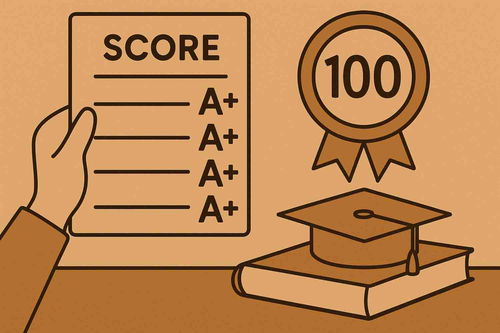
The ICSE board uses a carefully structured evaluation system that balances theory with practical learning. If you're aiming for top scores and wish to understand how to calculate your ICSE percentage, this post lays out all the details, based on the official 2025–2026 session data.
ICSE Marking Scheme: Distribution Group-Wise.
The ICSE Class 10 board examination evaluates students on the basis of a subject-group pattern. Each subject falls under one of three groups and the scoring procedure varies slightly among the groups.
Group I: Compulsory Subjects
- Subjects: English, History & Civics, Geography
- Marks Split:
- 80 marks: External board examination
- 20 marks: Internal assessment (project work, map work, class assignments)
Group II: Elective Core Subjects
- Subjects (choose any two or three): Mathematics, Science, Second Language (e.g., Hindi, Bengali, French), Economics
- Marks Split:
- 80 marks: External board exam
- 20 marks: Internal evaluation (lab records, class tests, practicals)
Group III: Applied/Vocational Subjects
- Subjects (choose one): Commercial Applications, Art, Computer Applications, Physical Education, Home Science, etc.
- Marks Split:
- 50 marks: External board exam
- 50 marks: Internal assessment
Why This Matters:
If you know how marks are distributed, it will help you immensely to optimise your process and know where to put in your efforts. For example, Group III has internal projects and presentations accounting for 50% of the grades, the same proportion as finals, making them critical for scoring high marks!
Internal Assessment: The In-School Advantage
Internal assessments are conducted by schools and carry 20–50% weight depending on the group. These are not random class tests, they are part of the official board-recorded score.
What Counts as Internal Assessment?
- Written Projects: Research, essays, presentations
- Oral Exams: Especially in languages
- Lab Practical Work: For Science, Home Science, and Computer Applications
- Physical Demonstrations: PE or Art practicals
- Field Work Reports: Geography, Environmental Applications
- Creative Portfolios: For subjects like Art or Commercial Applications
Example:
Internal in Computer Applications consists of Writing working programs, Explaining logic and Maintaining proper documentation. The school marks that as internal score and sends it to CISCE.
Pro Tip: It’s tougher to “reclaim” these kicked-up marks when you lose them, so yearlong performance matters and encouraged even.
Board Exam Evaluation: What Happens After You Write the Paper?
All external papers are centrally evaluated by ICSE-appointed examiners. The evaluation process includes:
- Structured Marking Scheme: Each question carries indicated number of marks. Assessors use "official" (publicly-available) answer keys and marking rubrics.
- Point-Based Answers: Students are encouraged to write in bullet points or structured formats, especially in subjects like History and Geography.
- Paper Re-Checking: Available upon request, although rarely changes marks unless there's a total calculation error.
Writing Tips for Better Evaluation:
- Underline keywords in long answers
- Stick to word limits
- Attempt all parts of a question (often you will get partial credit)
- Label all diagrams clearly as they have individual marking (Science, Geography)
How to Calculate ICSE Percentage (Best of Five Rule)
While a few boards average your marks from all the subjects, ICSE calculates the total percentage based on the Best-of-Five system, a unique, student-friendly rule. The process is done is simple steps:
- First you must include English in your five subjects, regardless of score.
- From your remaining subjects, choose your four highest-scoring ones.
- Add these five marks and divide by 5.
Example:
English (mandatory) = 85 Maths = 91 Science = 89 Computer Applications = 94 History & Civics = 80 Hindi = 78
Best of Five = English + Computer + Math + Science + History
Total = 85 + 94 + 91 + 89 + 80 = 439
Percentage = 439 / 5 = 87.8%
Note: SUPW (Socially Useful Productive Work) is graded separately. Please be aware that although it must be passed, marks are not considered in total percentage.
ICSE Grading System and Pass Criteria
Unlike boards like CBSE or IB, ICSE does not use letter grades (A+/B etc.) in reports. Instead, students are given actual marks in percentage form, which allows for detailed benchmarking.
ICSE Pass Criteria (2025–2026):
- Minimum 33% per subject, combining internal + external
- Overall average must be ≥ 35% across the Best 5 subjects
- SUPW must be passed (“Pass” or “Fail” status only)
- In case of failed subjects, improvement exams may be offered the following year.
Advanced Formula: What Happens During Re-Evaluation or Pandemic Scenarios?
If a board exam gets cancelled (as seen during COVID-19), or re-evaluation is needed, ICSE may apply the following weighted formula:
Final Marks = (0.7 × A) + (0.3 × B)
- A = Average marks in the top 3 external papers
- B = Internal assessment marks
- Normalize to the paper’s original weightage (e.g., scale to 80 or 50)
This maintains fairness while honouring consistent performance.
Tips to Maximize Your ICSE Score
-
Master Internal Work
➤ Treat every project and assignment seriously, they’re board weightage, not just homework. -
Select Subjects Strategically
➤ If you're good at Art, Computer Apps, or PE, scoring 95+ in Group III can boost your final percentage. -
Focus on Structuring Answers
➤ Write clear, concise points. Use bullet lists. Label diagrams. Stick to the marking scheme. -
Don’t Ignore English
➤ You cannot exclude English from your best five—keep improving essay and grammar skills. -
Use Past Papers & Sample Marking Schemes
➤ Practice from official ICSE specimen papers to understand marking patterns. -
Track Your Internal Scores
➤ Schools must share internal marks before final submission. Don’t hesitate to clarify any discrepancies.
FAQ: People Also Ask
Q1. How is ICSE percentage calculated in 2025–2026?
Ans: Your percentage is based on the Best 5 subjects, including English compulsorily. You pick the next 4 highest-scoring subjects and average the marks.
Formula:
(English + Best 4 Subject Marks) / 5 = ICSE %
Q2. Does internal assessment really count in ICSE?
Ans: Yes. Internal assessments carry 20% weight in Group I and II, and 50% in Group III. These marks are submitted to CISCE and count toward your final score.
Q3. How are board exams evaluated?
Ans: ICSE board exams are evaluated by trained external examiners who follow a strict marking scheme. All answers are checked for content, structure, and clarity.
Q4. What is the minimum passing mark in ICSE?
Ans: The pass criteria is calculated as:
- You need 33% per subject, combining internal and external marks.
- You must pass at least 5 subjects including English.
- SUPW (Socially Useful Productive Work) must also be passed, although it’s graded separately.
Q5. Is ICSE harder than CBSE?
Ans: ICSE is often considered more comprehensive and language-intensive, with emphasis on long-form writing and application-based questions. While both are challenging, ICSE may require more depth, especially in language and humanities.
Conclusion: ICSE Scoring Rewards Consistency, Not Just Cramming
The ICSE marking and grading scheme is tailor-made to recognise and reward balanced, year-long effort. With internal examinations, practical and “best-of-five,” it is possible for students to work smart and optimize their scores by being smart and consistent, not just exam-focused.
Whether you are aiming to get your dream score, or just want to be set up for an easy passing experience, knowing how ICSE evaluates you gives you the upper hand.
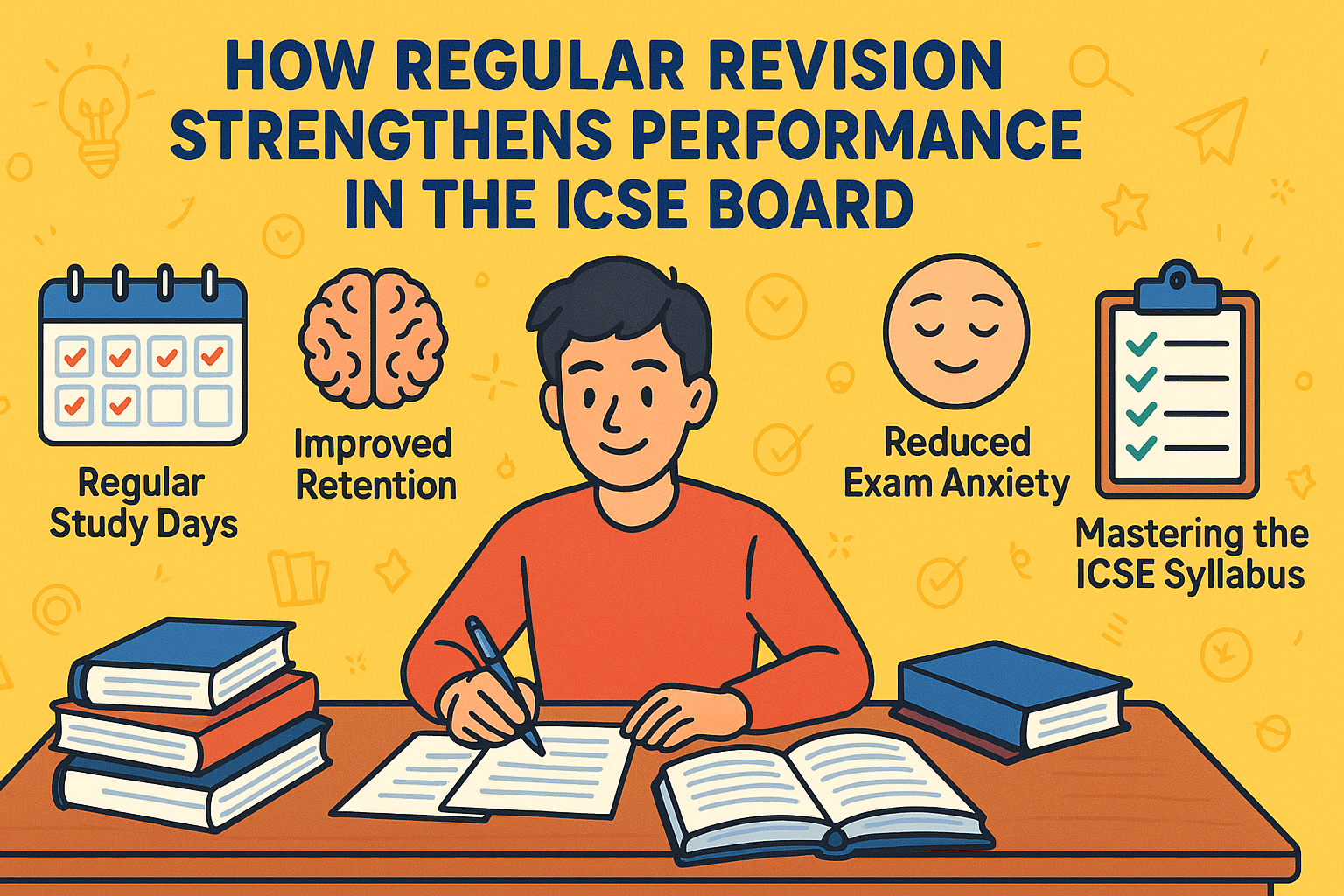
Learn how regular revision strengthens performance in the ICSE board, improves retention, reduces exam anxiety, and...

Learn how to create a reading-friendly home environment for ICSE students to improve comprehension, confidence, and...

Learn how to encourage curiosity and inquiry in ICSE learners by supporting concept clarity, safe questioning, and...

Explore the role of parents in supporting ICSE academic growth, from understanding the ICSE curriculum to building...
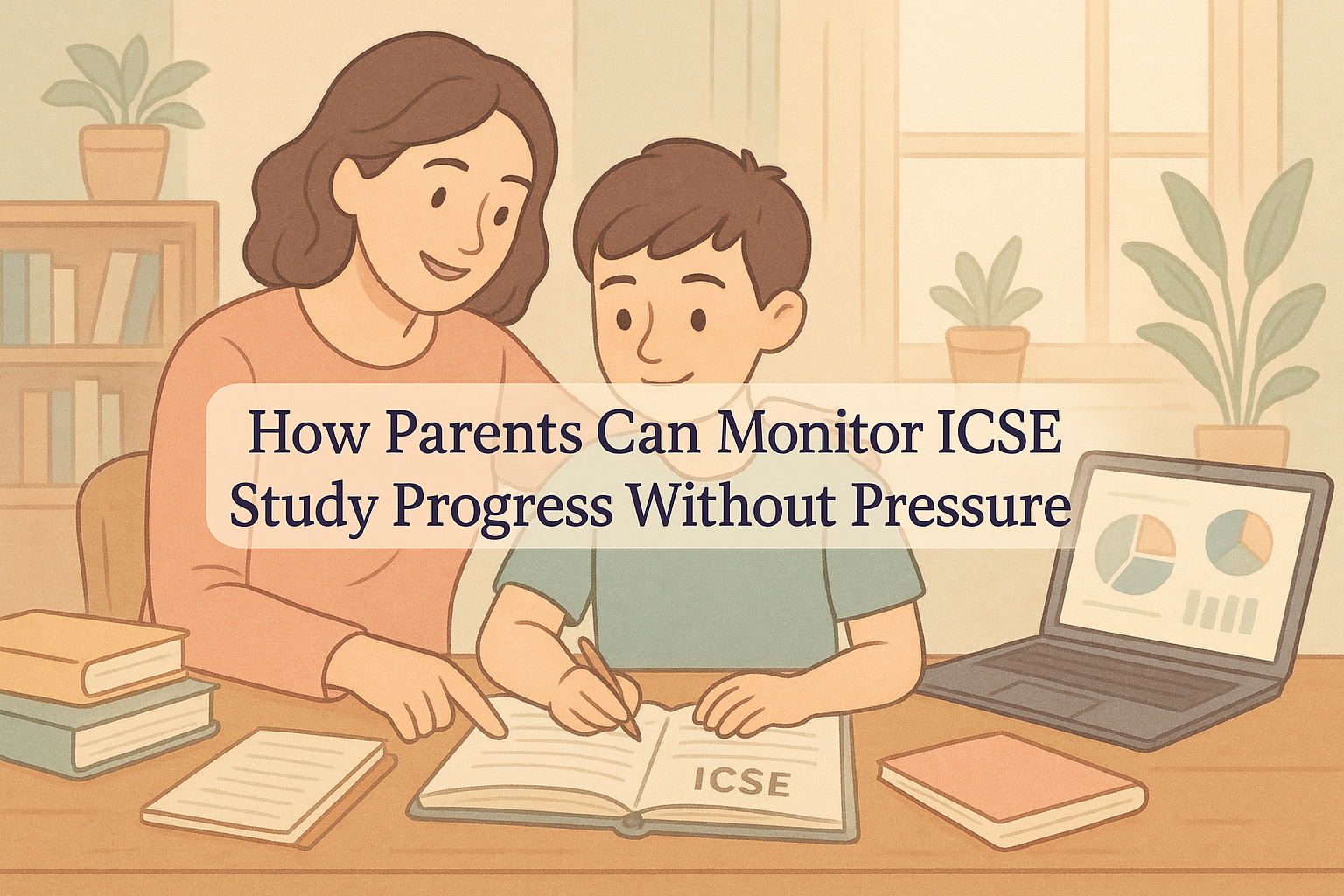
Learn how parents can monitor ICSE study progress without pressure, support concept clarity, reduce stress, and help...

Learn the essential time management skills every ICSE student should build early to handle the syllabus, reduce...

Learn how consistent study habits help ICSE students master the syllabus, reduce stress, and achieve long-term...

Learn how parents can help children manage the ICSE syllabus without burnout using balanced routines, smart...

Learn how the ICSE curriculum strengthens vocabulary and comprehension skills while helping students think deeply...

Explore why literature and language skills are central to ICSE learning and how strong English foundations shape...

Discover how the ICSE curriculum builds strong reading habits early through textbooks, literature, and structured...

Understand how continuous assessment strengthens the ICSE curriculum by supporting deep learning, consistency, and...

Explore what makes the ICSE curriculum academically rigorous and why its depth, structure, and assessment style...

Understand how the ICSE syllabus progresses from primary to senior classes and how parents can support smooth...

Learn ICSE-specific methods parents can use to help children overcome exam anxiety, build confidence, and approach...

Learn how parents can support a smooth transition into ICSE Class 11 by building habits, confidence, and clarity...

Learn how early preparation for ICSE exams reduces stress, builds confidence, and improves scores through steady...

Learn how to use ICSE textbooks and supplementary guides effectively without overwhelming students, while building...

Discover what ICSE topper strategies reveal about effective parental support and how parents can guide learning...

Understand why ICSE students are excelling in competitive exams and how the ICSE curriculum builds strong concepts,...

Discover how ICSE help platforms support students struggling with multiple subjects through structured learning,...
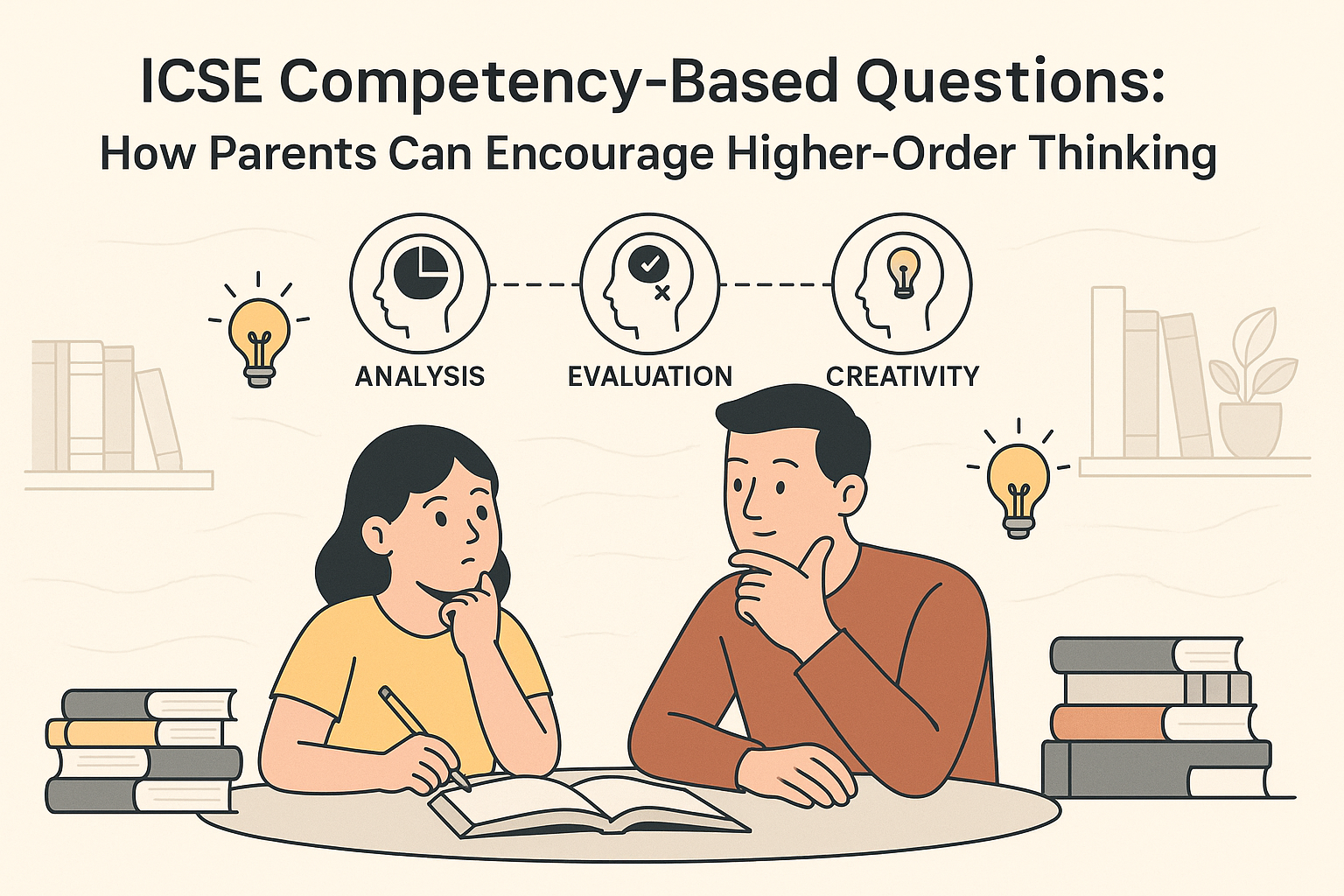
Learn how ICSE competency-based questions build higher-order thinking and how parents can support children through...

Explore how digital learning is reshaping ICSE schools by improving concept clarity, engagement, and academic...

Learn how to build strong self-study habits at home using ICSE help resources that improve understanding, confidence...

Understand how practical learning in ICSE schools builds clarity, confidence and real world skills that prepare...

Learn how project-based learning is transforming ICSE classrooms and helping students build real-world skills...

Explore why ICSE schools are gaining popularity in tier-2 cities and how curriculum depth, career readiness and...

Explore how recent ICSE syllabus realignments are equipping students with future-ready skills, career adaptability...

Understand how competency-based ICSE exams build strong foundations that prepare students for NEET, JEE and CUET...

Learn how to build a year-round ICSE exam study schedule that reduces stress, builds consistency and helps your...

Understand how ICSE textbooks support application-based learning and help students build strong concepts, analytical...

Explore why parents of high-performing students and toppers choose the ICSE board for senior classes and how its...

A clear guide for parents on the upcoming ICSE syllabus changes in 2026 and how these updates impact learning, exam...

Explore the best ICSE schools in Mumbai that balance academics and co-curricular growth while supporting holistic...

Discover the best ICSE schools in Mysore that blend strong academics with the city’s cultural traditions, while...

Discover the best ICSE schools in Lucknow that follow child-centric learning, strong academics and holistic...

Parents prefer ICSE schools in Ahmedabad for concept-based learning, strong academics and holistic development....

Explore the best ICSE schools in Madurai that offer balanced education, strong academics, and holistic development...

Explore the best ICSE schools in Pune that offer balanced education, strong academics and holistic development for...

Explore the top ICSE schools in Dehradun known for academic rigor, balanced learning and strong foundations that...

Explore the best ICSE schools in Chennai that offer strong academic foundations, holistic growth and a syllabus that...

Explore the top-rated ICSE schools in Hyderabad known for strong academics, balanced learning and a modern approach...

Explore the best ICSE schools in Coimbatore that blend tradition with innovation through strong academics, modern...

Discover the top ICSE schools in Bangalore that focus on academics, skills, creativity and holistic growth to help...

Discover the best ICSE schools in Chandigarh offering strong academics, modern facilities and a proven track record...

Explore the best ICSE schools in Kolkata known for academic strength, modern facilities and a strong focus on...

Explore the best ICSE schools in Nagpur offering strong academics, modern facilities and a balanced approach...
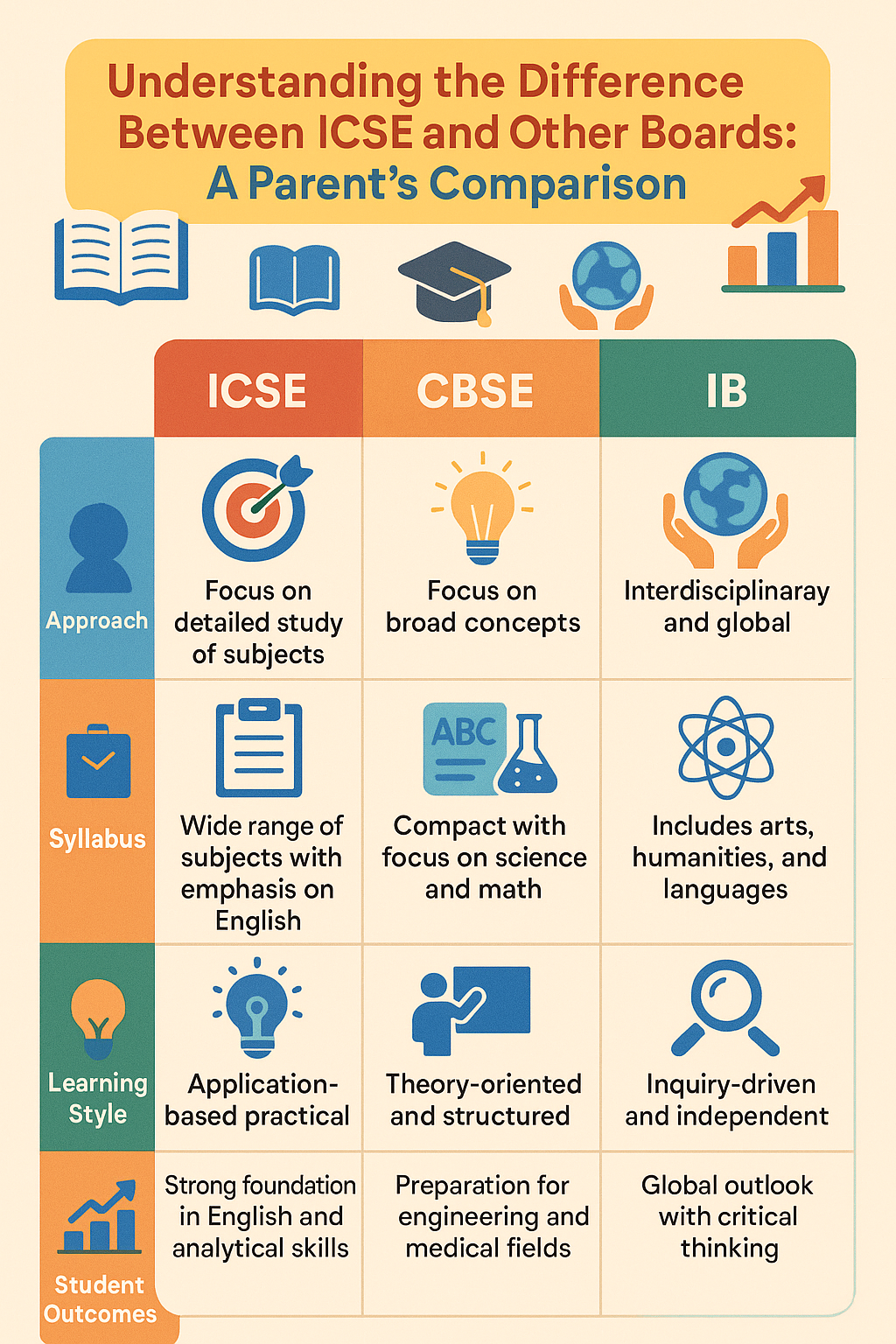
A clear comparison of ICSE, CBSE and IB boards to help parents understand differences in approach, syllabus,...

Explore how ICSE’s competency-based approach strengthens understanding, real-world thinking and lifelong learning...
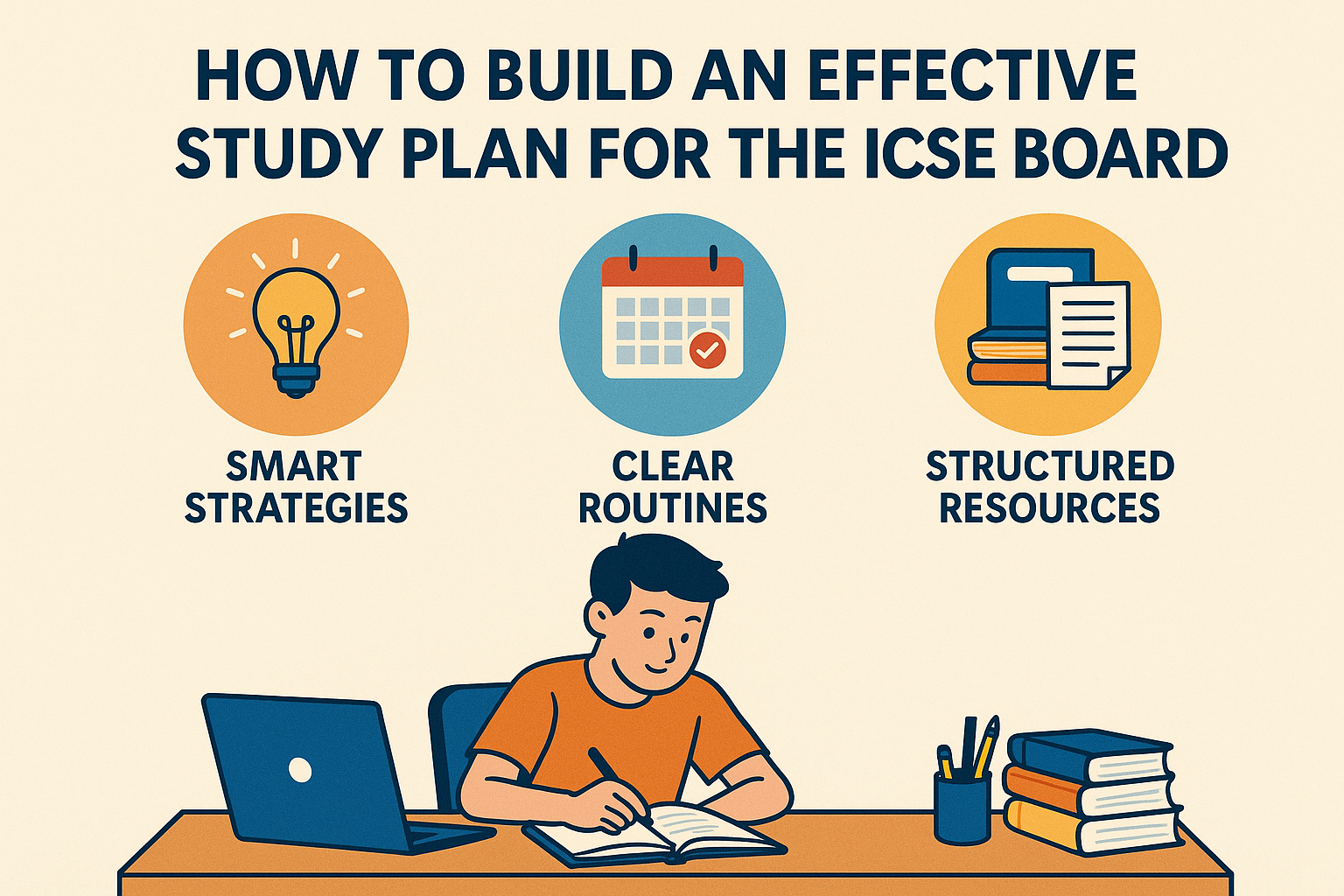
Learn how to build an effective ICSE study plan with smart strategies, clear routines and structured resources for...

Learn how ICSE toppers study, stay consistent and master concepts. A complete guide for parents and students...

A complete step-by-step guide to using ICSE help materials effectively so students learn faster, stay organised and...

A complete guide for students and parents to prepare effectively for the ICSE exam with proven study strategies,...

A detailed guide for parents and students to identify genuine ICSE topper notes, reliable resources and accurate...

A parent-friendly guide to ICSE competency-based questions, why they matter and how they strengthen real-world...

A complete guide to choosing the right ICSE textbooks for your child, with tips on syllabus alignment, clarity,...

A parent-friendly guide to supporting children in ICSE Physics using practical methods, real-life learning and...

A complete parent-friendly guide to ICSE Biology, covering basics, syllabus insights and steps to help students...
.jpg?width=500)
Build strong ICSE Chemistry fundamentals with simplified concepts, smart study strategies, and structured ICSE help...

Improve ICSE History learning with engaging strategies, simplified explanations, and smart study tools. Help...

Discover how to improve writing and comprehension skills in ICSE English. Learn effective strategies, ICSE syllabus...

Discover practical ways parents can help children master ICSE Maths. Learn about the ICSE syllabus, study...

Explore ICSE 12th result insights, grading details, and how to use your ICSE marksheet for college admissions. Learn...
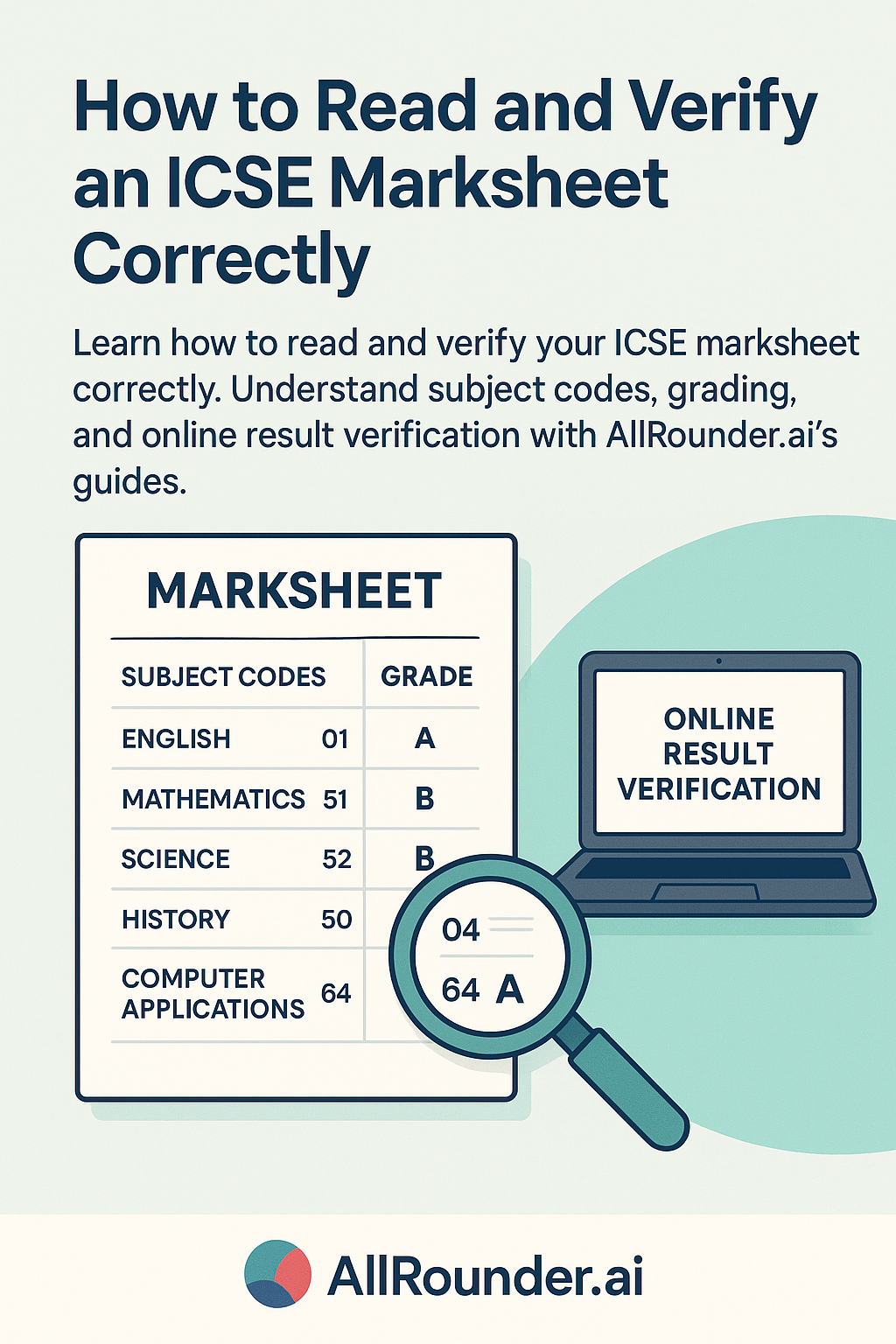
Learn how to read and verify your ICSE marksheet correctly. Understand subject codes, grading, and online result...
.jpg?width=500)
Explore key ICSE 10th result trends, marking patterns, and expert tips to excel in the ICSE exam with...
.jpg?width=500)
Master concept-heavy ICSE subjects with simple study strategies, smart tools, and AllRounder.ai’s personalized...
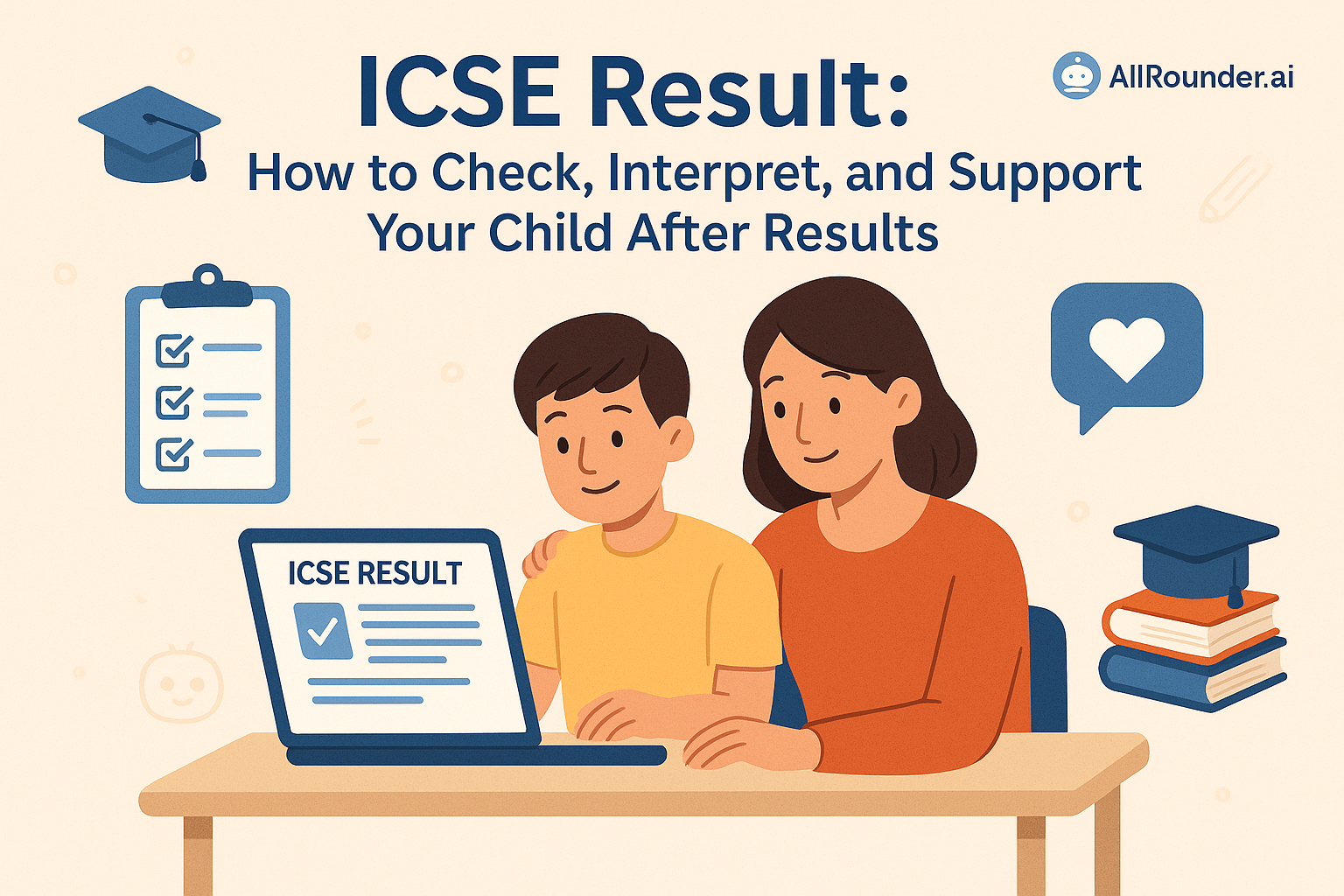
Learn how to check ICSE results, understand grading, and support your child emotionally and academically with help...

Discover how the ICSE syllabus builds analytical skills, conceptual clarity, and confidence to prepare students for...

Discover why the ICSE board is ideal for your child’s future with its balanced syllabus, analytical learning...
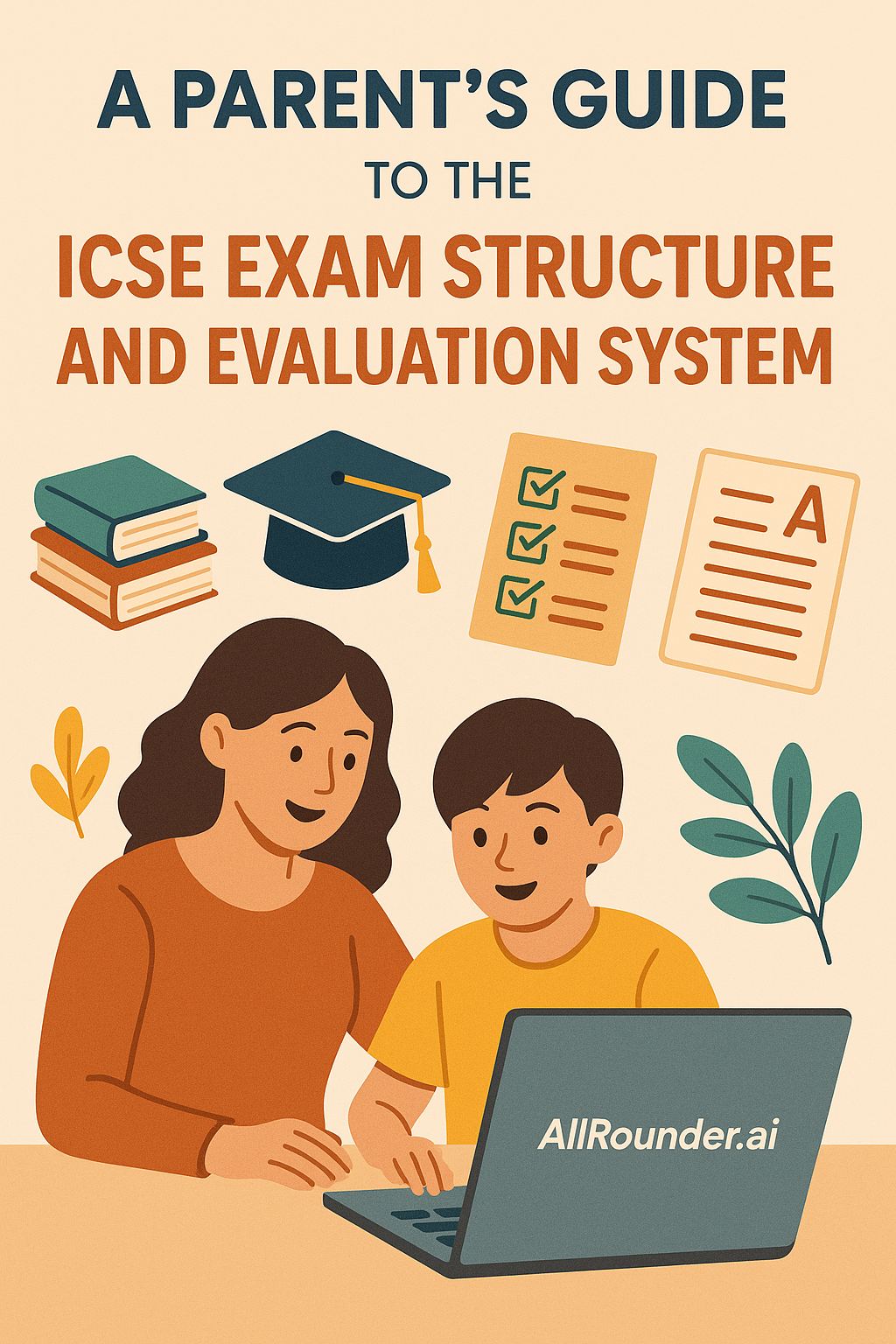
Understand how the ICSE exam system works with this detailed parent’s guide. Learn about subjects, evaluation...

Learn how the ICSE board promotes analytical thinking, conceptual understanding, and balanced development. Discover...

Explore how ICSE help platforms like AllRounder.ai make learning simpler for students by breaking down the ICSE...

A complete guide to the ICSE Class 10 Computer Applications project work. Learn how to choose a topic, plan design,...

Discover the best reference books for Class 10 ICSE Maths. Learn how to use them effectively with AllRounder.ai’s...

Planning for ICSE school fees? Our guide breaks down the costs in major Indian cities, helps you find affordable...

Compare ICSE vs. CBSE to choose the best board for your child. Learn about syllabus differences, teaching styles,...

Learn how to choose the best ICSE subjects for Class 9 and 10. Explore Group I, II, and III subjects, internal...

Learn how the ICSE grading system works in 2025–26. Know internal assessments, percentage calculation, and tips to...

Discover how ICSE builds critical thinking, analytical skills, and real-world problem-solving through its unique...
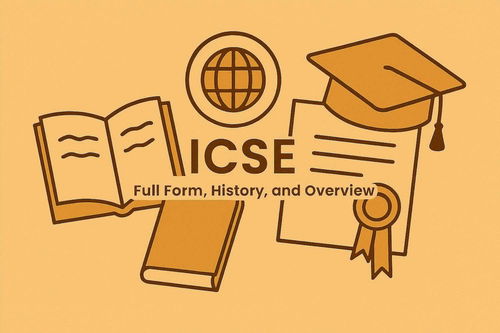
Understand the ICSE board – its history, structure, curriculum, and unique advantages over other boards.
Resources
-

Your complete JEE Advanced resource for eligibility, exam dates, syllabus, marks vs rank, and...
-

Understand the entire JEE Main process, from application and eligibility rules to the exam...
-

Explore the IB Board – a global curriculum emphasizing holistic, student-centered learning...
-

Learn about CBSE – India’s national school board offering a standardized curriculum, NCERT...
-

Explore everything about the ICSE board – its curriculum, subjects, exam format, and academic...
